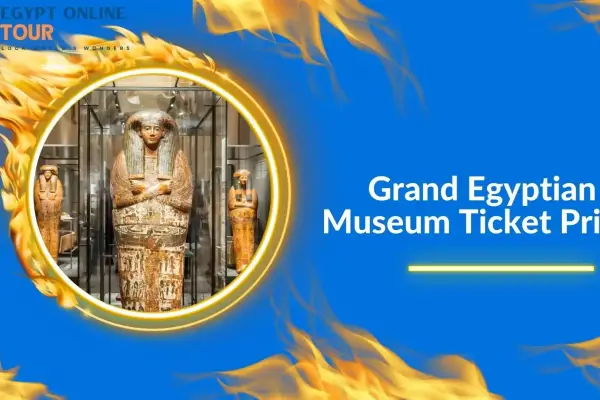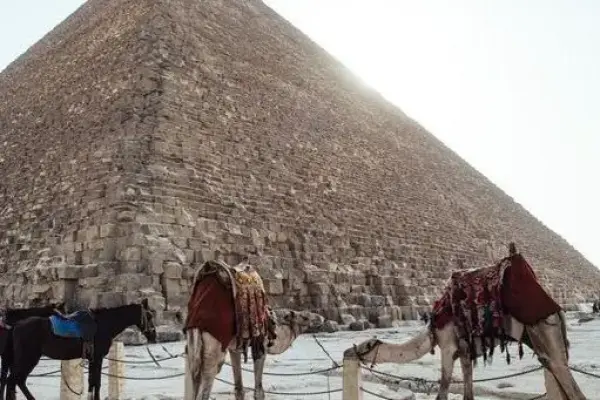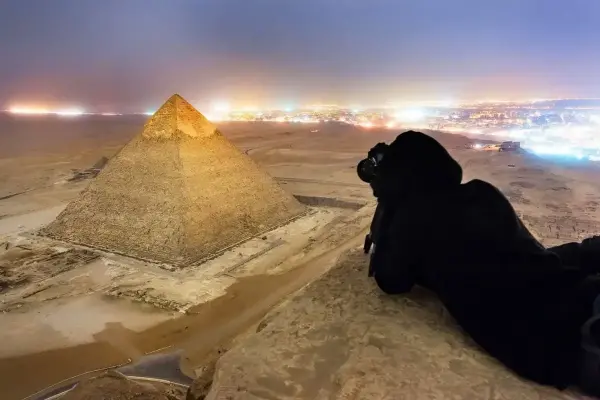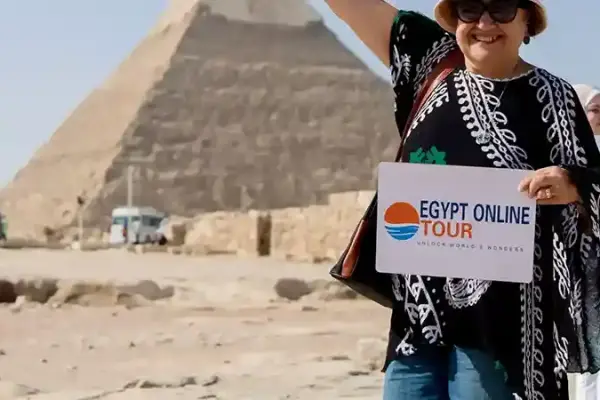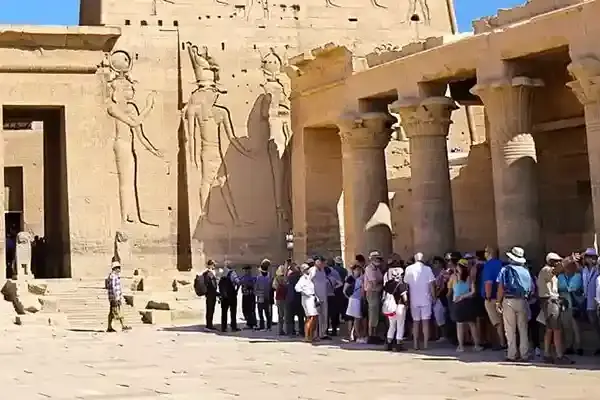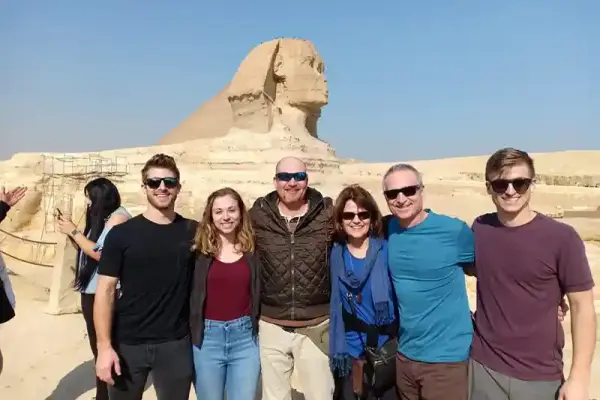When looking at ancient Egyptian and Greek mythology, we find many similarities between the gods of the two civilizations, which prompts us to ask: what did Greek replace Egyptian gods name with?
This article explains the answer and many other questions related to these two ancient civilizations.
Table of contents [Show]
Did Egypt ever speak Greek?
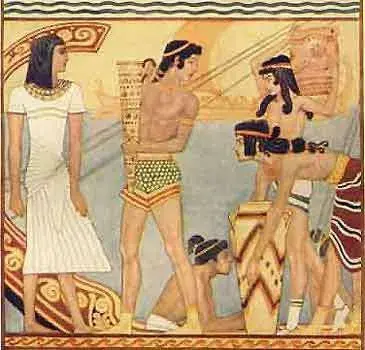
First, let us learn about the relationship between the ancient Egyptians and the Greeks. Was there a relationship and did the Egyptians ever speak the Greek language?
After Alexander the Great conquered Egypt, his commander Ptolemy I Soter founded the Ptolemaic Empire, which ruled from 305 to 30 BC. During this period, Greek became the country's official language, as it became the language of the ruling class and those close to it.
After the end of the Ptolemaic rule, Egypt became under Roman rule until 641 AD, during which time Greek also remained the official language of the ruling class and government agencies.
But do the general Egyptians speak Greek? It is most likely that the Egyptians did not speak Greek but continued to speak their language, Demotic Egyptian, then Coptic later
Are there still Greek Egyptians?
Before we answer the question, what did Greek replace Egyptian gods name with, let us first get to know the Greek community in Egypt and find out if there are Greeks still living in Egypt. The Greek community in Egypt has a long history dating back to the Hellenistic era when Alexander the Great invaded Egypt. Over the ages, this community flourished and its number increased, especially in the city of Alexandria, until it became an integral part of the Egyptian people
However, after the July 1952 revolution, political instability, and economic difficulties forced some Greeks to leave Egypt.
However, there are still a small number of Greeks in Egypt, concentrated in the governorates of Alexandria and Cairo, who preserve their culture and heritage through schools, churches, and Greek cultural associations.
You may also like: What to see in one day in Alexandria Egypt
What are Greek Egyptians called?
The Greek race that has existed in Egypt since the Hellenistic era is known as the Greek Egyptians or the Egyptiotes. As we mentioned, they are a community that tries to preserve its identity and culture and is part of the fabric of Egyptian society.
what did greek replace Egyptian gods name with
The Greeks did not replace the names of the ancient Egyptian deities with the names of their deities, but they equated the Egyptian gods with the Greek gods according to the degree of similarity between them in attributes, and this was known as interpretation graeca
This cultural exchange and blending of beliefs was particularly prominent during the Ptolemaic dynasty when Greek culture had a major influence on Egypt.
interpretation graeca
It is a process carried out by the Greeks during their rule of Egypt, where they mixed and combined cultural elements and religious symbols to conform to their religious and cultural framework.
This helped shape later Greek and Roman culture.
It is noted that the Greeks did not directly replace the names, but rather mixed the identities and attributes.
Both the Egyptians and the Greeks continued to worship their gods, but the Greeks glorified their gods and saw them as universal figures.
Egyptian Gods vs Greek Gods
Now that we know the answer to the question, what did Greek replace Egyptian gods name with? Let's learn about the similarities and differences between the gods in the two ancient civilizations. Despite the great similarities between them, there are also clear differences
Egyptian gods
ancient Egyptians often represented their gods as humans with animal heads,
The Egyptians were deeply intertwined with the universe, nature, and the afterlife.
Egyptian mythology also contains complex family relationships and struggles for power.
Greek Gods
The Greeks represented their gods in the form of humans with feelings and flaws like ordinary humans but with supernatural powers.
The twelve Olympians, led by Zeus, are the most prominent of the Greek gods, and Greek mythology is full of legends about their epic heroics and struggles with monsters.
The Intertwining of Cultures
During the Hellenistic period, when Greek culture spread throughout the Mediterranean, there was a significant cultural exchange between Greek and Egyptian civilizations. This led to a syncretism of deities, where Greek gods were equated with Egyptian ones based on perceived similarities. For example, Zeus was often associated with the Egyptian god Amon-Ra, while Isis was linked to Demeter and Persephone.
Examples of Egyptian gods and their counterparts Among the Greeks and Romans
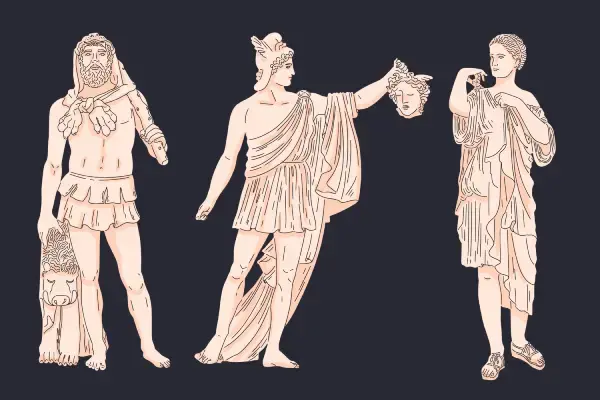
mother goddess
Isis represents the mother goddess of the ancient Egyptians, and her counterpart is Hera among the Greeks and Juno among the Romans.
father
For the ancient Egyptians, Osiris was the symbol of the father god and was the husband of Isis. Among the Greeks, he is equivalent to Zeus, the husband of Hera, and among the Romans, he is equivalent to Jupiter, the husband of Juno.
Sun god
The sun god of the ancient Egyptians is Ra, and he is equivalent to Helios among the Greeks and Sol among the Romans.
Moon god
Isis is the moon goddess of the ancient Egyptians, and she is equivalent to Selene among the Greeks and Luna among the Romans
Evil Gods
The god who symbolized evil among the ancient Egyptians was called Set, while among the Greeks he was called Typhoeus and among the Romans, he was called Typh.
These are just examples of the similarity between Egyptian, Gree,k and Roman deities, but there are many other examples that we cannot mention now.
Egyptian equivalent of Aphrodite

Two Egyptian deities are equivalent to Aphrodite in her qualities, and they are:
Hathor
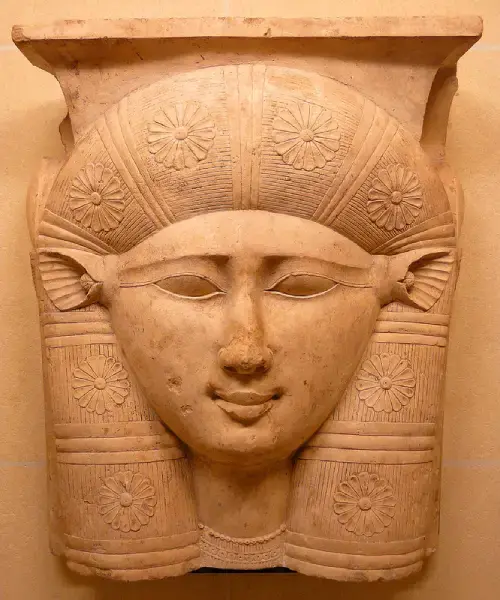
Hathor symbolized fertility, beauty, and love. The Egyptians considered her an embodiment of feminine power and grace.
Isis
The Egyptians depicted this deity on the walls of temples with the horns of a cow and the sun disk, representing many powers, such as motherhood, magic, and healing.
During the Roman era, due to the intermingling of Greek and Egyptian cultures, Isis was associated with Aphrodite and considered similar to her.
Due to the religious and cultural blending between these two civilizations, a goddess who combined the qualities of Aphrodite and Isis was called Isis-Aphrodite.
If you want to take a magical trip to see the magic of ancient Egyptian civilization in Cairo and Giza, as well as the Roman ruins in Alexandria, we recommend our program Egypt Classic Tours which provides you with 5 Days, 4 Nights Cairo and Alexandria Adventure
Where you enjoy a unique journey between the two cities, full of fun and excitement.
Finally, if you are asked this question one day what did Greek replace Egyptian gods name with?
Now you know the answer: The ancient Egyptians and Greeks had their own gods, and the names of the Egyptian gods were never replaced. There is only a similarity between the characters and their supernatural powers.
FAQ
1- What did the Greeks call Egypt?
The Greeks called Egypt Aegyptos.
2- who is the Greek equivalent of Horus?
Horus was the sky god who symbolized healing and in contrast, among the Greeks, there was Apollo who had the same qualities.
3- Who is older, Greek or Egypt?
Of course, the ancient Egyptian civilization is older than the Greek civilization by about two thousand years.
Popular Categories
Related properties
Cairo, Aswan, and Luxor
-
Precio
$ 2,850
-
Tipo
Package
Cairo, Aswan, and Luxor
-
Precio
$ 1,850
-
Tipo
Package

